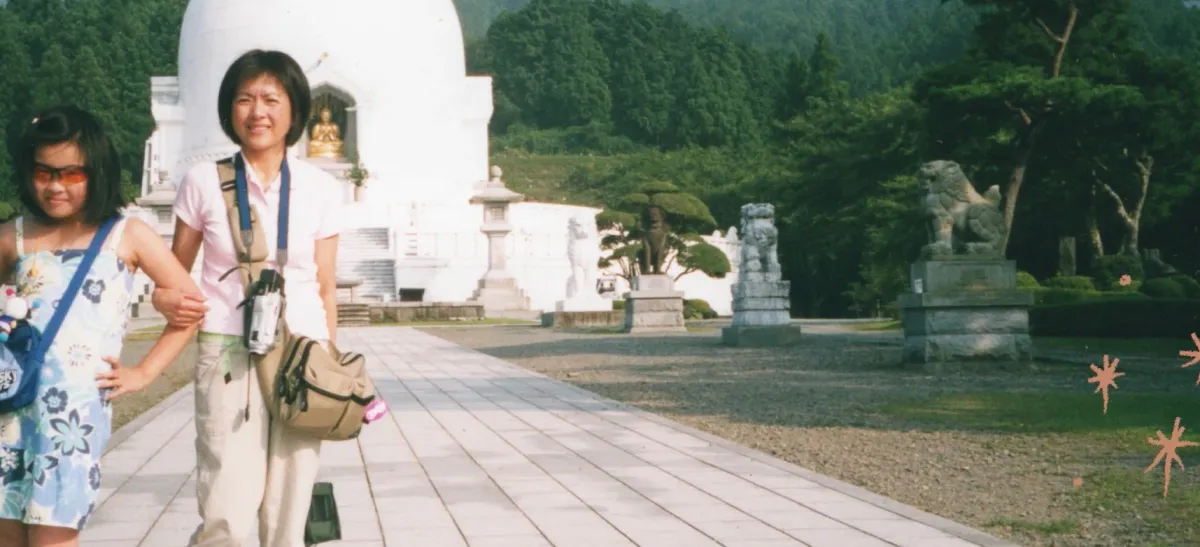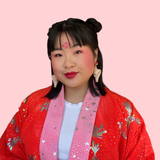I Found Joy in Mending my Relationship with my Parents and Breaking Cultural Expectations
I've now started living as the creator of my own reality - and it's been an act of liberation.

Access the Audio Read version of this article directly on Spotify for Podcasters.
"I found myself picking up All About Love by bell hooks. While reading through it, I was struck by the parallels with my own life, especially regarding my relationship with my parents."
I’ve had a wild few months. I’ve reached spiritual enlightenment, sure, but what’s even more surprising than me ascending to the fifth dimension is that I’ve mended my relationship with my parents, and am now managing to maintain a healthy dynamic with them whilst living at home.
I’m British Chinese. My parents are from Hong Kong, but I was born and raised in the UK. I had the stereotypical upbringing – I lived in a takeaway, did a bajillion extracurriculars (including Kung Fu and Chinese school), and was a high-achiever all throughout high school. In other words, I was the perfect Chinese daughter.
Tensions with my parents began to rise, however, when my life began diverging from the path they’d envisioned for me. I’d rejected the idea of becoming a doctor early on, but after graduating, with a degree in French, Russian, and Spanish and having zero intention of going on to study law, work for the foreign office, or go corporate, the atmosphere at home became decidedly frosty.
All my parents ever wanted for themselves, and by extension, for me, was a nice house, a stable job, a happy family. Comfort and security – the immigrant dream. Meanwhile, all I ever wanted for myself was freedom. To them, my rejection of traditional careers in favour of being a freelance creative was me unceremoniously throwing all their years of hard work in their faces. Understandably, they were incensed.
I had a pretty catastrophic breakdown in August (a result, once again, of me arguing with my parents about my future) and I found myself picking up All About Love by bell hooks. While reading through it, I was struck by the parallels with my own life, especially regarding my relationship with my parents.
The biggest realisation: my childhood home could never be described as “loving”.
Of course, many tearful (yet transformative) discussions with my therapist ensued and I underwent a period of intense personal growth.
One morning, after a lot of personal reflection, I sat my dad down and orally translated Chapter 2 of All About Love, Justice: Childhood Love Lessons, into Cantonese. In doing so, I was finally able to articulate everything I felt during my childhood, sift through tumultuous emotions, and begin processing my trauma.
My dad, perhaps unexpectedly, listened to everything I said without any interruption and even apologised. Although he simply said, “I’m sorry,” it felt monumental. Of course, apologies don’t solve it all, but in that moment, my dad’s apology soothed my soul and allowed me to pursue a path of healing more easily.
Interestingly, the moment I decided to cast aside my fear of talking to my dad (a fear ingrained in me since childhood), the fabric of reality seemed to shift. It was as though the chains tying me to the past suddenly shattered and I became weightless. My heart felt lighter and my soul was free.
My dad ended up mediating a conversation between my mum and me. It was difficult and emotionally draining, but my mum also apologised for her past harmful behaviour.
My parents always stated that I needed to meet them halfway. This was a maxim I’d unwittingly internalised and let seep into every aspect of my life, often to the detriment of my wellbeing. What I finally realised was that I didn’t have to compromise on areas that didn’t involve them, such as my choice of career or my choice of partner. Acknowledging this meant I no longer tried to live as the character of my parents’ dreams but instead, I started living as the creator of my reality.
This act of liberation ultimately led me to true joy. Recognising that I deserve to carve out my own path, that I deserve to live life on my own terms, allowed me to find joy in myself. And it began to overflow and permeate through my home.
Home. A space that for so long had been a place of restriction, of arguments, of barriers to happiness, whether they were cultural, generational, or linguistic, has now become a space of calm and healing, where I can exist without feeling the need to escape. A space of unadulterated love.





